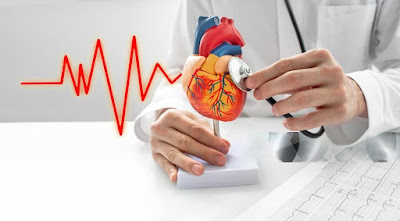Tachycardia, a condition characterized by a rapid heartbeat, can be a concerning and uncomfortable experience for many individuals.
Understanding Tachycardia:
Tachycardia occurs when the heart beats faster than normal, typically exceeding 100 beats per minute at rest. While occasional episodes of tachycardia may be harmless, persistent or recurrent episodes could indicate an underlying health issue.
Causes of Tachycardia
There are various factors that can contribute to tachycardia, including:
Heart Conditions
Certain heart conditions such as atrial fibrillation, ventricular tachycardia, and supraventricular tachycardia can lead to rapid heart rate.
Stress and Anxiety
Emotional stress or anxiety can trigger tachycardia episodes in some individuals.
Medications
Certain medications, such as stimulants, decongestants, and asthma medications, may cause tachycardia as a side effect.
Substance Use
Excessive consumption of caffeine, nicotine, or recreational drugs can also contribute to tachycardia.
Symptoms of Tachycardia
Common symptoms of tachycardia include:
- Rapid heartbeat
- Palpitations (feeling of fluttering or pounding in the chest)
- Dizziness or lightheadedness
- Shortness of breath
- Chest pain or discomfort
- Fainting or near-fainting spells
Prevention Strategies:
While some cases of tachycardia may be unavoidable, there are steps individuals can take to help prevent or minimize episodes:
Healthy Lifestyle
Adopting a healthy lifestyle, including regular exercise, balanced diet, adequate sleep, and stress management techniques, can help promote heart health and reduce the risk of tachycardia.
Limit Stimulant Intake
Limiting consumption of caffeine, nicotine, and other stimulants can help prevent tachycardia episodes.
Manage Stress
Practicing relaxation techniques such as deep breathing, meditation, or yoga can help reduce stress levels and lower the risk of tachycardia.
When to Visit a Doctor
It's essential to seek medical attention if you experience frequent or persistent episodes of tachycardia, especially if accompanied by symptoms such as chest pain, shortness of breath, or fainting spells. Your healthcare provider can perform diagnostic tests to determine the underlying cause of your tachycardia and recommend appropriate treatment options.
FAQs
What are the common triggers for tachycardia episodes?
Tachycardia episodes can be triggered by various factors, including stress, anxiety, certain medications, substance use, and underlying heart conditions.
Can tachycardia be life-threatening?
While most cases of tachycardia are not life-threatening, certain forms of tachycardia, such as ventricular tachycardia, can be serious and require prompt medical attention.
Are there any lifestyle changes that can help prevent tachycardia episodes?
Adopting a healthy lifestyle, including regular exercise, balanced diet, stress management, and limiting stimulant intake, can help reduce the risk of tachycardia episodes.
What diagnostic tests are used to evaluate tachycardia?
Diagnostic tests for tachycardia may include electrocardiogram (ECG), Holter monitor, event recorder, echocardiogram, and electrophysiology study (EPS), among others.
What are the treatment options for tachycardia?
Treatment for tachycardia depends on the underlying cause and may include medication, lifestyle modifications, catheter ablation, or implantable devices such as pacemakers or implantable cardioverter-defibrillators (ICDs).
Can tachycardia be triggered by certain foods or beverages?
Yes, certain foods and beverages containing caffeine, such as coffee, tea, and energy drinks, as well as alcohol and spicy foods, may trigger tachycardia episodes in some individuals.
Is tachycardia more common in certain age groups?
Tachycardia can occur in individuals of all ages, but certain types of tachycardia, such as atrial fibrillation, are more common in older adults.
Can stress and anxiety contribute to tachycardia?
Yes, emotional stress and anxiety can trigger tachycardia episodes in some individuals by stimulating the release of stress hormones and increasing heart rate.
Are there any natural remedies for managing tachycardia symptoms?
While lifestyle changes such as stress management techniques, relaxation exercises, and limiting stimulant intake may help reduce tachycardia symptoms, it's essential to consult with a healthcare provider for personalized treatment recommendations.
Is tachycardia always a sign of a serious health condition?
Not necessarily. While tachycardia can sometimes indicate an underlying heart condition or other health issue, occasional episodes of tachycardia may be harmless and not require medical treatment. However, it's essential to seek medical attention if you experience frequent or persistent episodes of tachycardia or if accompanied by concerning symptoms.








0 Comments